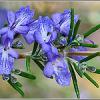Hsu SC et al., Resveratrol increases anti-aging Klotho gene expression via the activating transcription factor 3/c-Jun complex-mediated signaling pathway, Int J Biochem Cell Biol. 2014 Jun 6.
Abstract
The Klotho gene functions as an aging suppressor gene. Evidence from animal models suggests that induction of Klotho expression may be a potential treatment for age-associated diseases. However, the molecular mechanism involved in regulating renal Klotho gene expression remains unclear. In this study, we determined that resveratrol, a natural polyphenol, induced renal Klotho expression both in vivo and in vitro. In the mouse kidney, resveratrol administration markedly increased both Klotho mRNA and protein expression. In resveratrol-treated NRK-52E cells, increased Klotho expression was accompanied by the upregulation and nuclear translocation of activating transcription factor 3 (ATF3) and c-Jun. ATF3 or c-Jun overexpression enhanced the transcriptional activation of Klotho. Conversely, resveratrol-induced Klotho expression was attenuated in the presence of dominant-negative ATF3 or c-Jun. Coimmunoprecipitation and a chromatin immunoprecipitation assay revealed that ATF3 physically interacted with c-Jun and that the ATF3/c-Jun complex directly bound to the Klotho promoter through ATF3- and AP-1-binding elements. c-Jun cotransfection augmented the effects of ATF3 on Klotho transcription in vitro. Although Sirtuin 1 mRNA expression was induced by resveratrol and involved in regulating Klotho mRNA expression, it was not the primary cause for the aforementioned ATF3/c-Jun pathway. In summary, resveratrol enhances the renal expression of the anti-aging Klotho gene, and the transcriptional factors ATF3 and c-Jun functionally interact and coordinately regulate the resveratrol-mediated transcriptional activation of Klotho. Copyright © 2014. Published by Elsevier Ltd.

















































